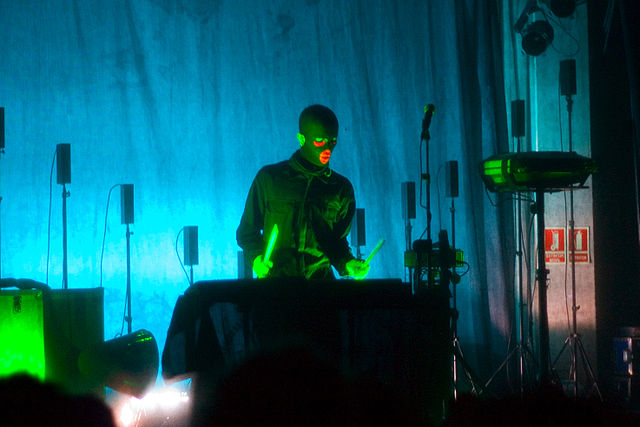The name “The Knife” is evocative of many images when paired with a musical project, and neon-polished pop is among them. Simplicity, however, does not apply much to this particular musical outlet, even though from the outset it appears cut and dry.
The Knife is a peculiar, unique music project by Olof and Karin Dreijer, siblings from Sweden. Formed in 1999, the Knife released their eponymous debut in 2001. Just two years later, in 2003, the duo was nominated for two Grammys, which (and the male dominance in popular music reflected in it) they proceeded to protest by sending two protesters in gorilla masks (a-la the Guerilla Girls) in their stead, and have continued to express distaste for selling their music commercially (while, of course, acknowledging the necessity of it).
The Knife prefers not to come out in public as they are, often wearing masks to conceal themselves. Despite their sizeable discography (see below) and countless singles, the Knife is as antagonistic to the (conventional) distribution of music as can be. Further fueling this, the Knife did not hold live performances at all until 2006. The promotion of their latest album, tentatively titled “Shaking the Habitual”, however, is the absolute anti-thesis of this, the Rudy Ratzinger approach. The “Shaking the Habitual” show features an ensemble consisting of a grand total of 49 people: dancers, DJs (some constant, some exclusive to certain cities), crew, costume designers, tailors, etc.
However, information about the project creates more the image of someone who created the electronic lovechild of the Sex Pistols and Atari Teenage Riot if judged by their antics, or a minimalist indie electronica band, judged by their album covers. The music resonated by the Knife is, interestingly, quite different than what their outer shell might suggest. They have been called a “permafrost synthpop duo,” a term that scratches the surface. Synthpop can imply an electronic, or an industrial genre, and the Knife successfully straddles the thin line separating the two. The instrumental aspect of the Knife’s musical output usually relies on the softer side of the synthetic. It’s rhythmic and evocative of the spiritual, often creating with their sound a unique mood.
Whether a song is a mood piece or a beat-driven pop number is completely immaterial, as in both cases, the duo manages to capture borderline moods. One can detect in the spiritual aspects of the music a tribal edge, reminiscent of what one pictures native dance rituals to be like, which is where the occult, once more, returns to the synthetic.




